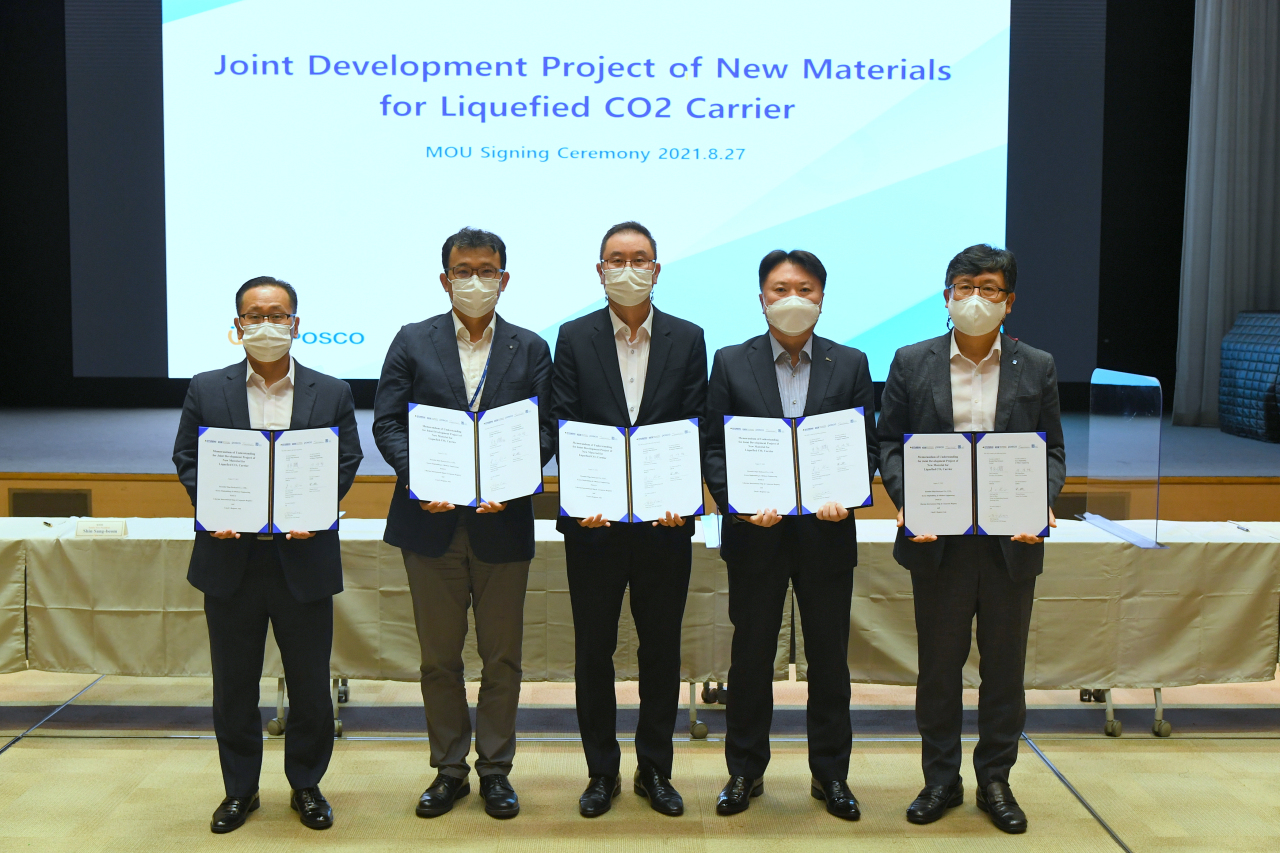South Korean steelmaker Posco has forged a five-way partnership encompassing shipbuilders and ship registries to develop a liquid carbon dioxide carrier tanker, as part of its bid to gain an upper hand in the global transition to a net-zero economy, the firm said Sunday.

From left: Kim Jung-sik, managing director of Liberian International Ship & Corporate Registry; Shin Sang-beom, senior vice president of Korea Shipbuilding & Offshore Engineering; Nam Young-jun, executive vice president of Hyundai Mipo Dockyard; Kim Sang-chul, head of Posco’s energy and shipbuilding materials marketing office; and Kim Young-doo, manager for Lloyd’s Register Asia. (POSCO)
Its four partners are Hyundai Mipo Dockyard, Korea Shipbuilding & Offshore Engineering, Lloyd’s Register Asia and Liberian International Ship & Corporate Registry.
According to the agreement, signed Friday in Seoul, the companies will cooperate with an aim of launching by 2025 the vessel with cargo capacity of at least 20,000 cubic meters. While doing so, they also hope to present the industry a new standard in building such carriers, Posco said.
To do so, the Korean steel firm will be in charge of the development of the steel for the tank that will contain the liquefied carbon dioxide.
The two shipbuilders will be responsible for designing and building the vessel, while Lloyd’s will look after certification and regulation issues.
The Liberian registry will handle the ship’s authorization and registration process.
The carbon capture, utilization and storage, or CCUS, market is expected to expand as pressure mounts on economies, industries and individual companies to achieve net-zero emissions by 2050, which means they should either emit no greenhouse gases or offsets its emissions by, for example, recapturing carbon dioxide produced.
According to the International Energy Agency, CCUS facilities around the world are capturing up to 40 million metric tons of carbon dioxide as of 2020. This is projected to drastically increase to 10 billion tons by 2070.
“With partner firms, Posco will open a new, green era by developing the world’s first, large-scale liquid CO2 tanker,” said Kim Sang-chul, who heads Posco’s energy and shipbuilding marketing office.
Hyundai Mipo Executive Vice President Nam Young-joon said, “Through this project, all five companies will come out as a leader in their respective field in the CO2 carrier market.”
Lloyd’s North East Asia’s Kim Young-doo said the joint development helps the ship industry to respond to the call of the times: decarbonization.
“To reduce emissions worldwide, the ship sector is also being asked to come up with technological innovations in tandem with decarbonization trends,” he said.
Alfonso Castillero, chief operating officer of the Liberian registry, said the carbon dioxide tanker project will become a milestone in the global maritime industry, having brought together the world’s leading steelmaker, shipbuilders and ship registries.